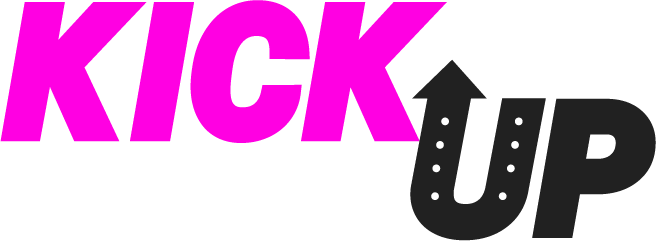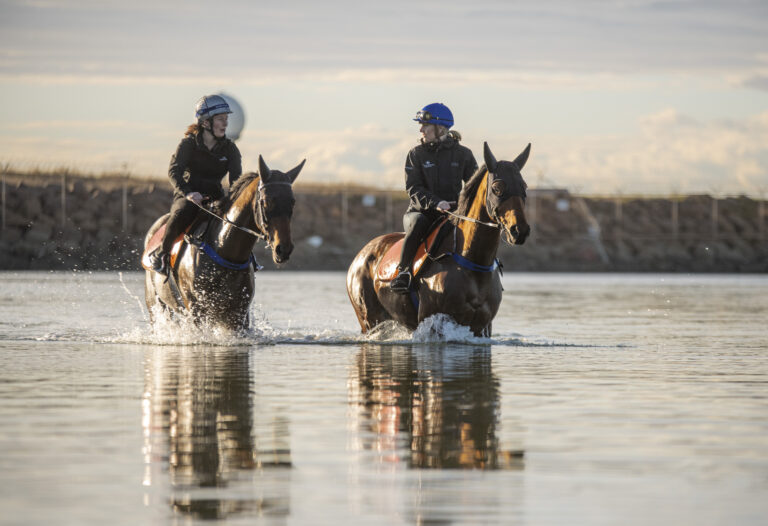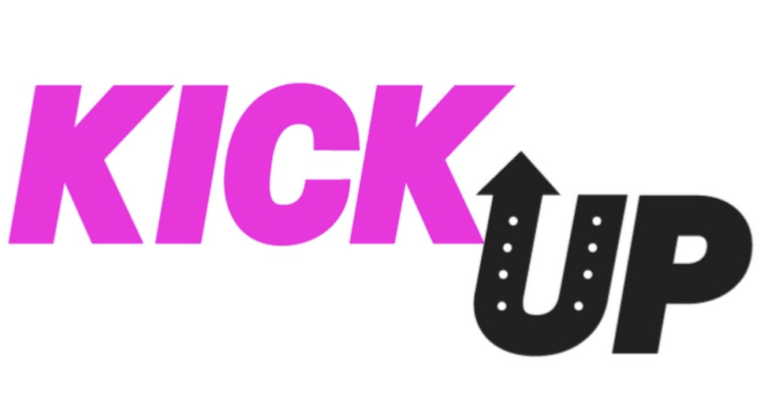In a continuing climate of anti-racing sentiment, a new online resource, Kick Up, has launched as an industry voice from within, drawing the welfare conversation away from hysterical myths and back to correct fact. We take a look at some of its details.
Cover image courtesy of Darren Tindale
Social licence is hard-earned these days, and racing knows it well. So too does the live export industry and greyhound racing, and just about any business that earns its living from animals.
In the last decade, horse racing has battled a strong tide of objection in the wake of abattoir exposés and Melbourne Cup breakdowns, to the point where picketers at the turnstiles are the least of its worries. More worrying is the everyday number of people quick to declare that racing is cruel.
Various sectors of the industry have attempted to address this wave of poor opinion.
The Principal Racing Authorities (PRAs) have amped up their welfare agendas, and welfare legislation within the rules of racing are tighter, stricter and more effective. Traceability is a priority, and veterinary protocols around major carnivals are the best they’ve ever been.
Is it enough, though? Unfortunately, the answer is probably not.
Lucand Dream is the ultimate competitive pony club mount. The 5yo 16.1hh Squamosa X Lucand Star is a quiet steady moving horse with a super loveable personality and talent to boot. Dreamer has had multiple mustering experiences and plenty of trail riding on his own and in groups! pic.twitter.com/y8OWNx9THu
— Team Thoroughbred NSW (@teamtbnsw) October 17, 2022
This month, Kick Up becomes the newest voice to speak on behalf of the racing industry. Created by industry participants with proper knowledge of and experience in the business of racing, it’s an online platform that answers common accusations flung at the sport.
For example, do you really want to know if, as PETA claims, horses are victims of a sport ‘rife with drug abuse’? Do you want to know if that figure of 10,000 racehorses going to the knackery each year is true? Are 2-year-olds more prone to injury and physically too immature to handle the Golden Slipper, and, as PETA also claimed, are most owners in this industry too greedy to retire horses to pasture?
These are some of the topics that Kick Up has addressed, each answered and debunked with industry fact and figure. And there are others.
Kick Up addresses the question of what happens to the slow horses, as well as the worldwide discussion on the use of whips in racing. It addresses the common misconception that thoroughbreds are forced to run, and why they are euthanised after a catastrophic breakdown.
Central to the Kick Up concept is that no one is better-qualified to answer industry criticism than the industry itself – people that have worked with racehorses, ridden racehorses, marketed racing or rehomed thoroughbreds. They are racing administrators, track riders, journalists and researchers.
Central to the Kick Up concept is that no one is better-qualified to answer industry criticism than the industry itself…
And, the platform itself is designed and motivated towards racing’s younger, impressionable audience, the Gen Z group that is swallowing so much of an ill-advised, poorly researched anti-racing movement.
Nup to the Cup’s mistruths
Englishman Oz Wedmore is one of the key players behind the Kick Up platform. The 28-year-old is a part-time journalist for TDN AusNZ, a senior researcher for Kick Collective, the marketing mothership behind Kick Up, and a trackwork rider at Randwick each morning.
All these hats have given Wedmore a unique perspective on the need for something like Kick Up these days.
“It was massively important for Kick Up to happen because it’s almost insulting to the people who work so hard in all conditions, at all hours and for not a huge amount of pay to see a sport they love being rubbished, and to hear people lie about the treatment of horses that they dedicate their lives to,” he said.
“…it’s almost insulting to the people who work so hard in all conditions, at all hours and for not a huge amount of pay to see a sport they love being rubbished, and to hear people lie about the treatment of horses that they dedicate their lives to.” – Oz Wedmore
Wedmore’s role as a track rider puts him in daily conversation with the hard-working heroes of racing’s everyday. He knows the strappers, trainers and yard managers, and he said that Kick Up is probably the first official, independent platform to try and balance the scales of racing opinion.

“Being the first to do it gives Kick Up the chance to do it the right way,” Wedmore said. “It will be entirely balanced and factual, cutting through the sensationalism that those opposed to racing horses are using to frame the debate.”
That sensationalism has escalated dramatically in the last decade, most likely fed by the public breakdowns in the Melbourne Cup.
Horses like Verema (Fr) (Barathea {Ire}), Admire Rakti (Jpn) (Heart’s Cry {Jpn}) and Red Cadeaux (GB) (Cadeaux Genereux {GB}) all died as a result of their Melbourne Cup runs, three of six horses to have died across the last eight editions of the race.
Things hit a new low in 2020 when Anthony Van Dyck (Ire) (Galileo {Ire}), an English Derby winner, broke a leg and was subsequently put down.
“The biggest problem with the Melbourne Cup is the dichotomy of promotion and welfare,” Wedmore said. “By making it a public holiday in Victoria, you open up that space where more people are going to watch that race than any other across the Australian calendar, and in doing so, the extraordinary breakdown rate in that race is advertising racing as something that it’s not.
“The Melbourne Cup breakdown rate since 2013 is 48 times the normal rate of breakdown in Australian racing in general, so that tells you why the Cup has had such an impact on public opinion. People are watching that race who normally don’t watch racing any other day, so has racing shot itself in the foot?”
“The Melbourne Cup breakdown rate since 2013 is 48 times the normal rate of breakdown in Australian racing in general, so that tells you why the Cup has had such an impact on public opinion.” – Oz Wedmore
In 2020, noted breeder Matthew Sandblom wrote a guest blog for TDN AusNZ after Anthony Van Dyck’s demise. In it, he said that the Melbourne Cup no longer represented what Australian racing was about, that it was providing ‘ammunition for everyone who wants to bring the sport and the industry down’.
Click here to read Matthew Sandblom’s guest blog
Kick Up takes a look at the Melbourne Cup from the perspective of fatal limb injuries, the overwhelming fact of them affecting largely international visitors in the Cup fields, and the responses from the Victoria Racing Club (VRC) and Racing Victoria.
But the tone of the conversation isn’t defensive. Kick Up isn’t about shouting down opposition or criticism; it’s about presenting industry facts to non-industry readers.

For example, of the deaths attributed to the Melbourne Cup since 2013, mainstream media and anti-racing organisations state simply that the horses were killed in the race. The facts are that four deaths since 2013 have been from fatal limb injuries, while a horse like Araldo (GB) (High Chaparral {Ire}), among the fatality count, fractured a limb when spooked by a flag in the crowd.
Kick Up states; ‘The rate of fatal limb injuries in the Melbourne Cup is shocking by any standard and exponentially higher than the annual horse-racing fatal limb injury rate in this country.’
In other words, don’t use the Melbourne Cup’s recent history as a benchmark for an entire industry.
By the industry, for the industry
Kick Up has an opportunity to reach a critical and largely young audience for modern racing.
Last Saturday, Royal Randwick pulled in close to 50,000 racegoers to witness The TAB Everest, with much of the marketing machine driven by fashion, youth and the social set, and much of the oncourse attendance being just that demographic.
These are the people that need to know the truth about the sport they’re paying to watch because they are an ethically driven generation. They’re interested in good choices about food, the environment and other issues, and the anti-racing message is in their faces.
What a moment to experience at the #TABEverest ?
— Australian Turf Club (@aus_turf_club) October 17, 2022
Each race goer singing along to “Sweet Caroline” an absolute classic. #WhereStoriesAreMade #SydneyEverestCarnival pic.twitter.com/6C0MaEgsUv
If they’re reading on Instagram or Facebook that racing is cruel, why shouldn’t they have ready access to a platform that counters that opinion?
If they like the sport, if the raceday experience was fun and positive and something they’d like to do again, wouldn’t it be healthy to learn about the industry from the industry itself?
Kick Up’s facts are reliable and exhaustive.
They are sourced from scientific papers and veterinary journals, from validated articles and respected, credible racing participants. They are not statements pulled from thin air by people that have no everyday interaction with racing, and there is no hysteria or sensationalism.
Kick Up’s facts are reliable and exhaustive… They are not statements pulled from thin air by people that have no everyday interaction with racing, and there is no hysteria or sensationalism.
As the marketing and media manager for Godolphin Australia, which places great importance on thoroughbred welfare and which invests a great deal of resources into its Lifetime Care program, Tanita Vella has plenty of experience in this space.
It’s complemented by hands-on experience of yearling preparations in New Zealand, along with time working at Inglis. In other words, she has a well-exposed insight into industry effort.
Vella is also one of the three founding board members at Kick Up alongside Leonard and Kick Collective’s Nathan Skrivanic.
“There’s a proportion of society challenging the status quo, and on all codes, not solely ours,” she said. “They’re challenging agriculture and its practices, manufacturing and retail industries, even the medical industry. I believe it highlights, more than ever, the need for a central resource to advance industry advocacy, return serve on the sensationalised mistruths and ensure an industry that I’m passionate about remains relevant.”

Kick Up is driven by the industry for the industry, and its brightly coloured website, bold fonts and well-lit template are deliberate.
It wants the message to be clear; that there is always another side to the story and, in the case of racing, that story is best written by the people that know the industry best.
Kick Up is hoping that its contents will be shared widely by its target audience, with an eventual goal of slowly reclaiming the narrative on horse racing. It’s quick to admit that the sport’s not perfect, as is no industry that is animal-driven, but the time for correction had come.




